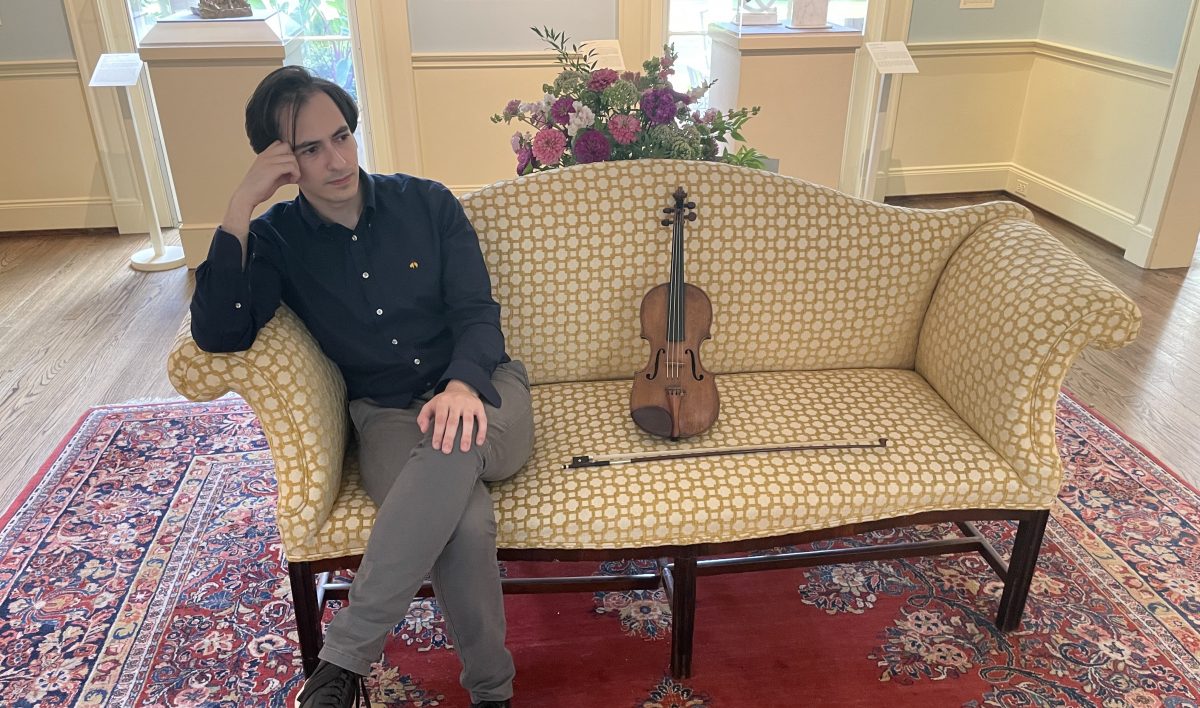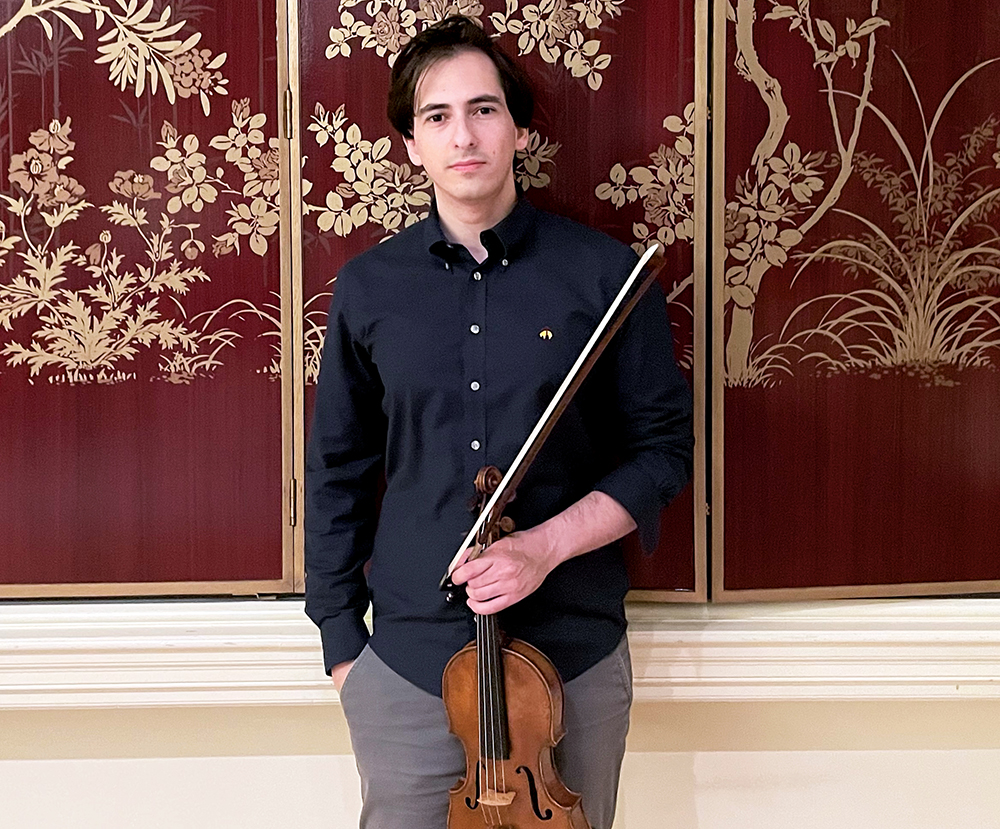“Two Children’s Songs” on violinist Basil Alter’s album, Mooncat, may be unlike anything you’ve ever heard.
It’s “not exactly classical music,” Alter says. “It’s not exactly jazz music. And it’s not exactly somewhere in between, either.”
The selection features two instruments: violin and electric bass. “Two unlikely instruments to be paired together.”
Alter, 24, a Memphian now studying at the Royal Academy of Music in London, will release Mooncat January 30th on all streaming platforms.
“Two Children’s Songs” was written before he began to think about compiling an album, says Alter, who has performed around the country, including Carnegie Hall in New York. “It was originally this piece I wrote. Just one piece for violin and electric bass as a duet.”
The two-movement work, which also features Michael Manring on electric bass, is “like a song, but no words.”
Jazz pianist Chick Corea’s collection of children’s songs was an inspiration for the piece.
Alter later decided to include his “Two Children’s Songs” on an album to be released in 2020, but the project ended up becoming a single. “I held onto these and then added another piece called ‘Mooncat.’ And then, eventually, I decided to add ‘Laika,’ the fourth track on the album.”
His “Two Children’s Songs” is “more about the interplay between the violin and the bass.” He originally wrote the piece for one of his professors to perform with him in a concert. “He didn’t end up playing it, but it kind of led to this all working out in the way it has. Which has been really lovely.”
Alter doesn’t want to write the type music people have heard before. “I think the reason I write music is because I wanted to play something that wasn’t there already. And I’m pretty firm about that with myself because I think it takes a lot of time for me to write something that makes me really happy. So, I haven’t written a lot for that reason.”
And, he adds, “I want to express an idea I haven’t seen before.”
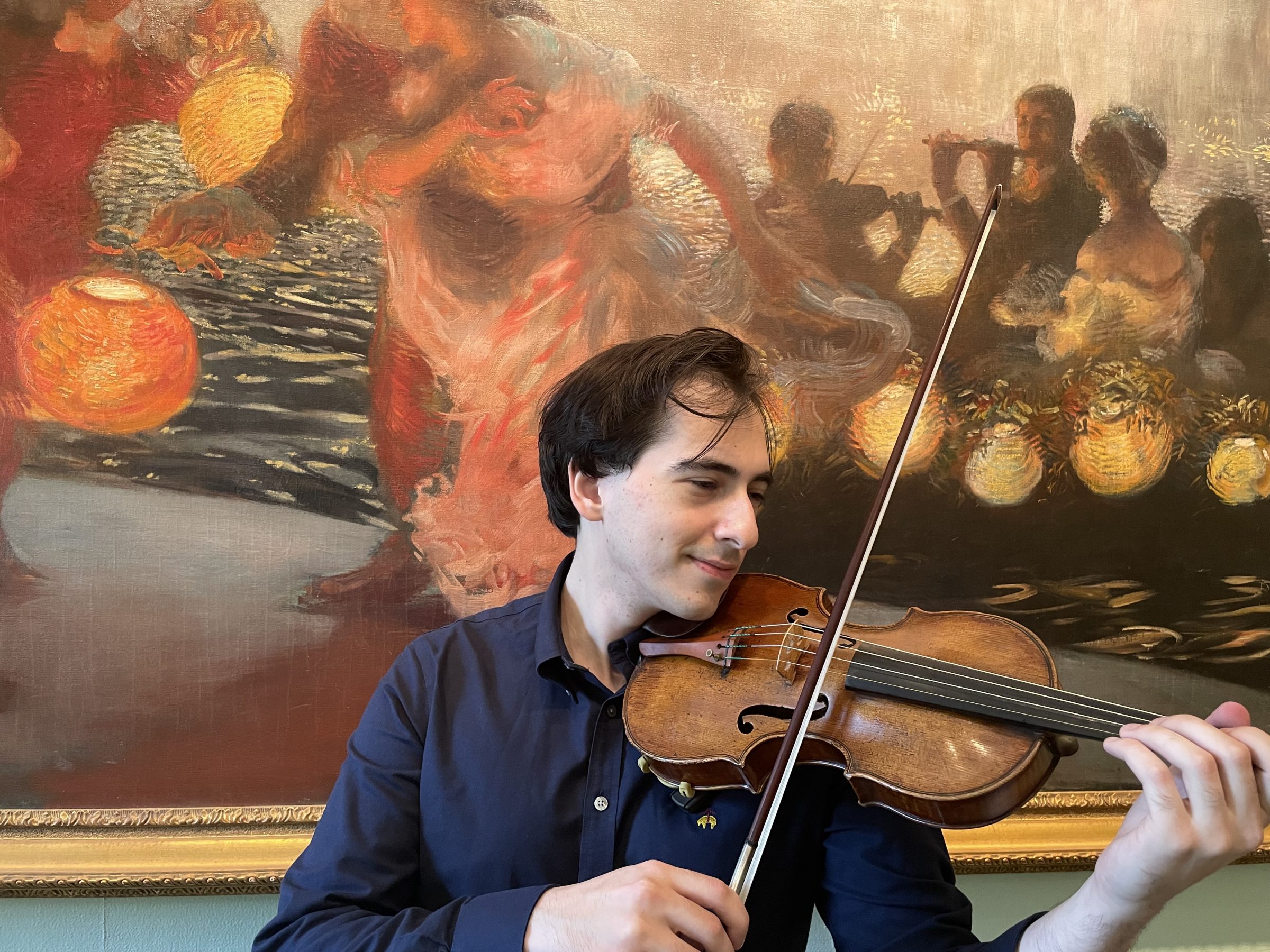
Alter, who recently began his second semester at the Royal Academy of Music, says, “What’s wonderful about being in London, specifically, is at the school here they really try to do away with all barriers and boundaries. All guidelines.
“So, when we have work to present, they barely give us any specifications on how it should look. I’ve known people in America who are kind of the opposite of that. If they hear a piece of music, they want to know if it’s jazz or classical music. How would we label it? It’s a very important thing to label it.”
Alter questions the purpose of labeling music at all. “If the label is prescribed by an artist, does that mean that’s what it really is? Who gets the right to label something? Should it be the listener or the artist? It can go on and on.”
He wrote “Two Children’s Songs” in 2019. “I already had a melody in mind. I had an idea. I knew the characters I wanted to portray within the music. I was trying to get it on paper as quickly as I could.”
The music also was inspired by the type art Memphis artist Sean Winfrey used for the cover of the album. “Sort of like a comic book, but not really. When I was a kid, I really liked picture books. I loved to see the drawings. Music often gets tied to a visual thing. For me, it’s really specific. I have very specific ideas sometimes about what I’m hearing and what that looks like.”
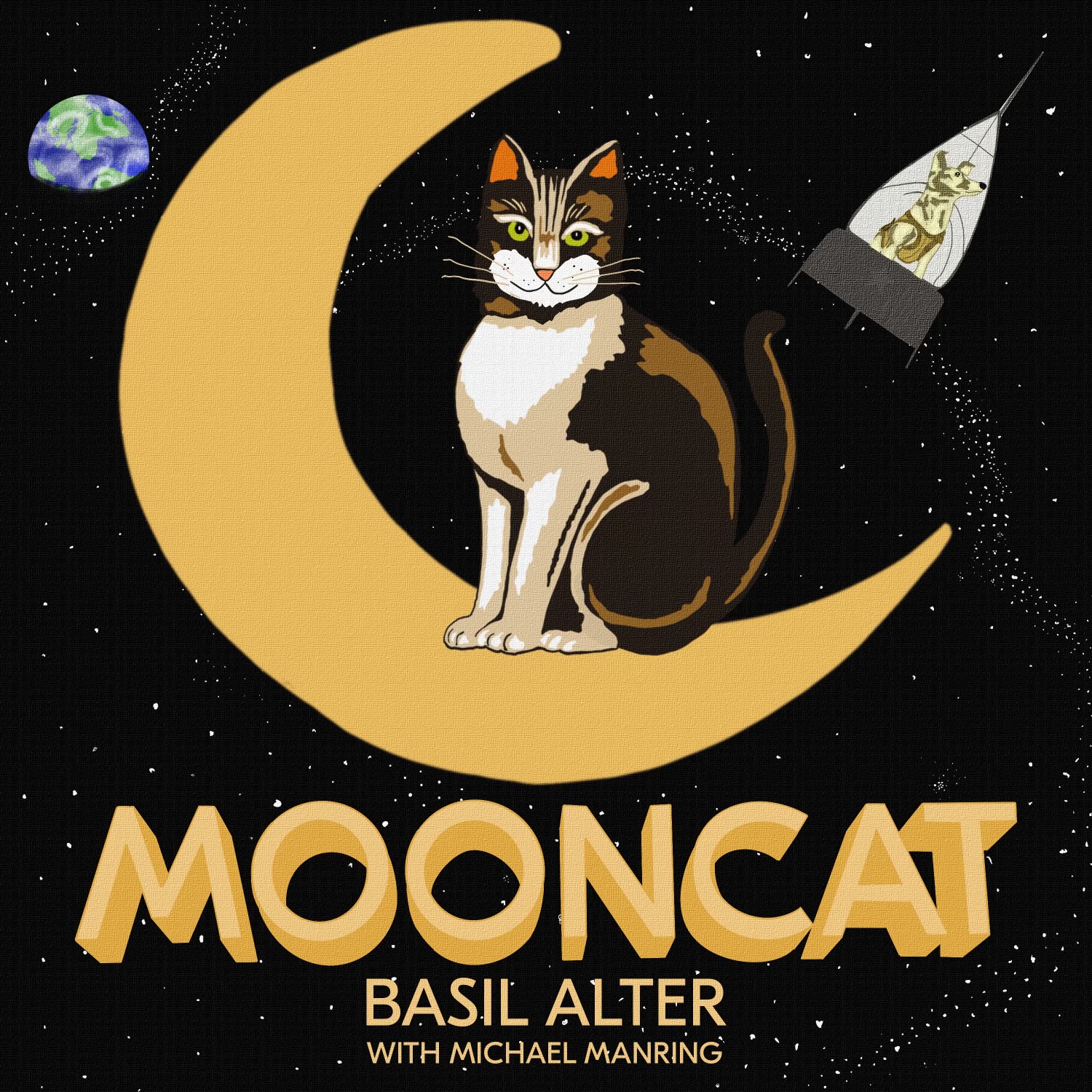
Unlike “Two Children’s Songs,” Alter’s selection, “Mooncat” is “more of a straight-ahead jazz tune. But it also is jazz that is written for violin and electric bass. Normally, you’d have a rhythm section or pianist or something for a typical jazz chart.”
“Mooncat” is “just a regular old tune, but perhaps not one someone would be humming down the street. But it’s a lighter fare than the ‘Children’s Songs.’”
Alter plays solo violin on “Laika,” which, he says, has more of a cinematic and movie style than the other works on the album. The title came from Laika, the dog the Soviets put into space in 1957.
He began putting the album together during the pandemic lockdown in 2020. “I was kind of losing it. Looking for something to do. Looking for a project. It was a really rough time. The world in Memphis in 2020 was not a great place.”
Alter thought, “I need something to work towards.”
People didn’t know if they were going to live through it or die when the pandemic began. “I felt a recording would stay if I didn’t last the year. A recording would outlive me. That’s kind of what sparked the intention. Life can disappear in a moment. A recording is something that sticks around.”
Mooncat isn’t a “children’s record,” Alter says. It’s not like Gustav Mahler’s musical collection of poems for children, Kindertotenlieder, or Robert Schumann’s three sonatas for young people, he says. “Those were for children. But I think there’s a level of simplicity at the same time. I think some things are more easily graspable. Maybe some things are not.”
In the past, when he worked with elementary school children, Alter played music and then asked, “How does that make you feel?”
As for Mooncat, he says, “I would be interested to see what actual children think.”
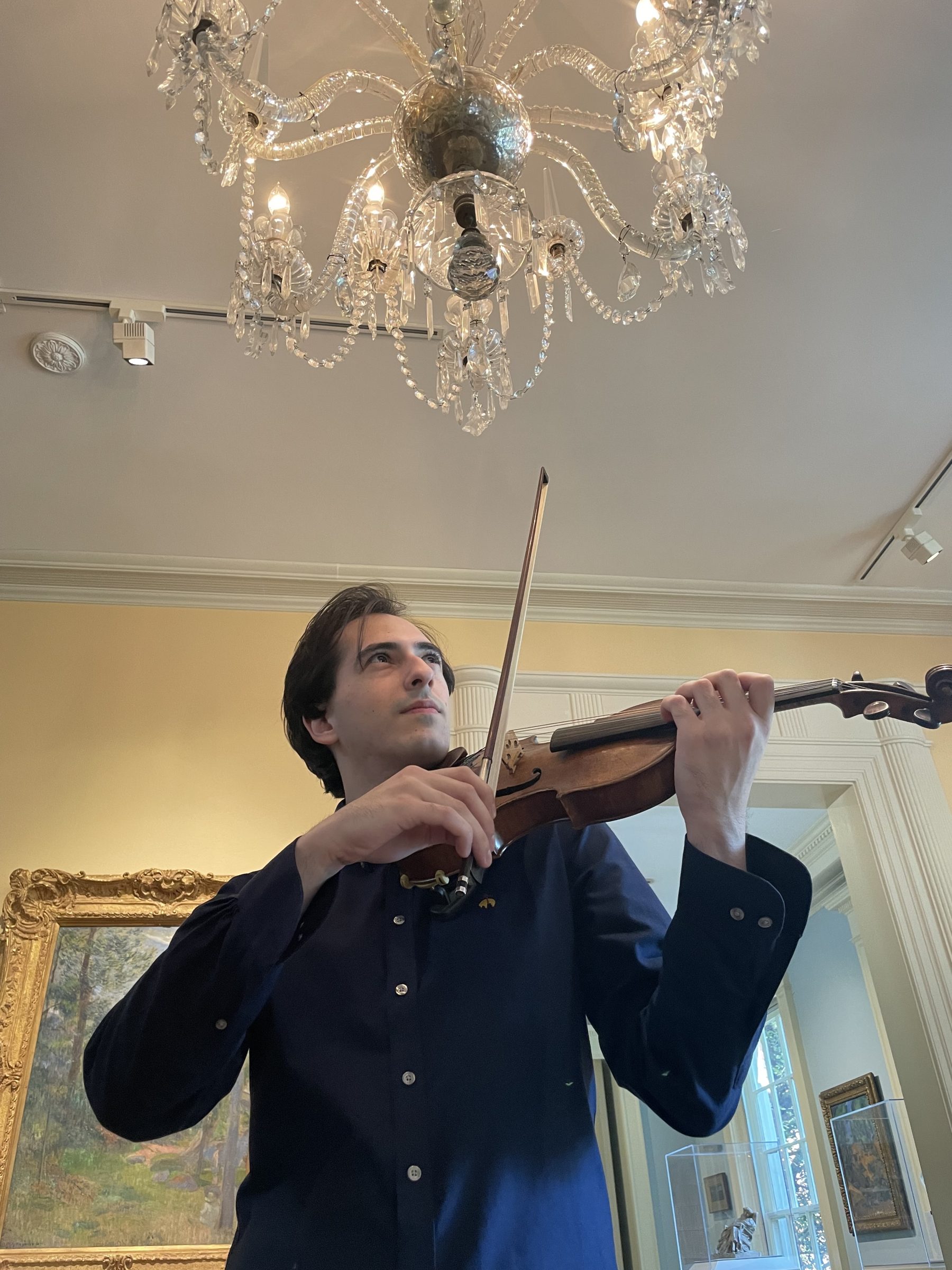
Alter, who moved to London last September, says, “It’s a very, very different culture here.”
And, he says, “I’m meeting people not just from England but from all over Europe and the rest of the world. I wasn’t sure how many people would be from where, but it just appears there’s students from everywhere here.”
Schooling is different in London than in the United States, Alter says. The English system of education is “very hands off.” Their philosophy is, “We’ll help you, but we’re not going to hold your hand.”
“They try to see just how far off on a deep end you can throw yourself. They don’t want to have any type of structure. They want us to be completely creative and find a new way to do things or ways to think about the world and music. It’s very different.”
Since he’s been in London, Alter has been performing in concerts in and around the city. “What’s nice about being here is classical music is part of the national identity.”
He accepts most offers to play. “Because I wanted to see the whole country. I wanted to see the rest of the world.”
Alter doesn’t limit himself to classical music. He has played jazz on occasion with Joyce Cobb. He played rock on two albums with Jesse Wilcox’s band, Daykisser, as well as Ben Callicott’s album, Late, and forty thieves’ (Ali Abu-Khraybeh) single “sweet state of mind.”
Alter will be back in Memphis April 7th to perform at a Memphis Chamber Music Society event at the home of Larry Edwards.
